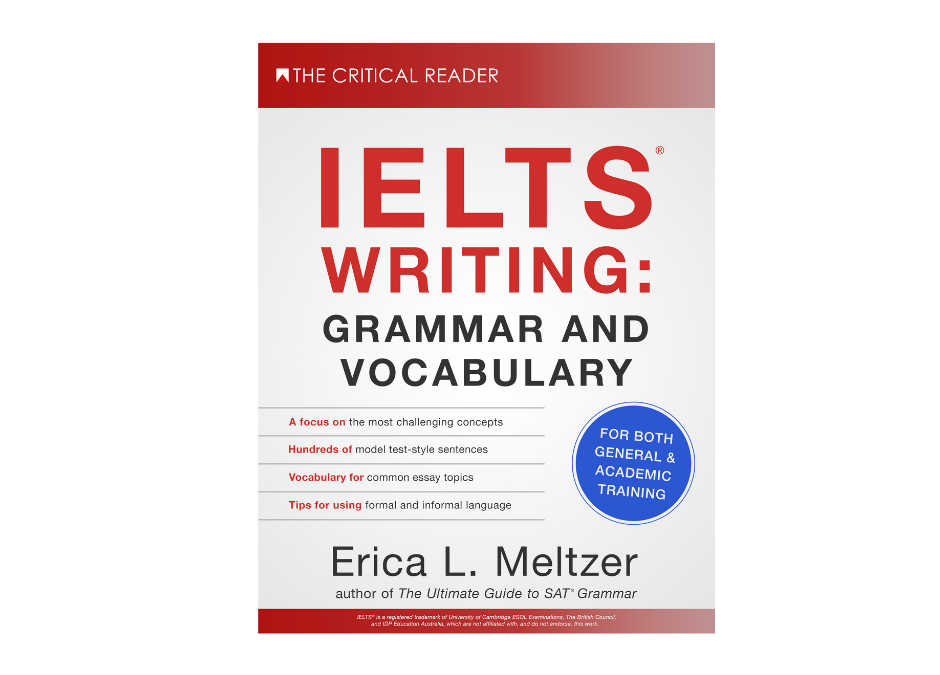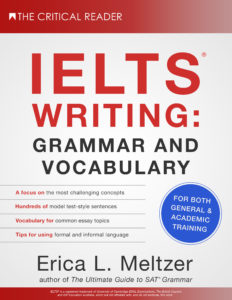The print version of my IELTS grammar and vocabulary guide covering both Academic and General Training is now available on Amazon as well as the Books page. If you’re studying for that exam, or are a tutor who prepare students for it, here is what you need to know.
IELTS® Writing: Grammar and Vocabulary is based on a simple premise: to write a good essay, one must first be able to write well at the sentence level.
Many IELTS Writing guides focus on overall essay organization and construction and treat grammar and sentence-structure almost as an afterthought. And if they do emphasize these aspects of English, they often include example sentences that are much simpler than those required by the exam, or that are not fully relevant to the kinds of topics it involves. As for books written by non-native English speakers… well, I’m not even going to go there.
This is book is different. To the greatest extent possible, it focuses on direct application to the IELTS. It shows how specific structures are particularly suited to certain topics and scenarios, and points out traps to avoid. It also walks readers through the process of constructing “complex” sentences without losing control of their writing, and covers common errors that many test-takers do not even realize can easily (and quickly) prevent them from achieving their desired score.
The topics in the guide were collected from real essays written by real students preparing for the IELTS. Chapters directly target the most common issues, including sentence structure and length, tense, formal vs. informal language, and frequently mis-/overused words. Explanations drill down into widespread misconceptions (what exactly is meant by “less-common vocabulary”; why memorizing entire phrases is not always a bad thing) and explain how and when certain constructions are and are not used.
Everything from the very basics (capital letters and spacing) up through very advanced topics (e.g., nouns functioning as adjectives) is covered.
Finally, this book places a heavy emphasis on idiomatic usage — usage that is not only grammatically correct but that also reflects how educated anglophones actually use English in various types of situations. It includes idioms, collocations, and linking devices that native English speakers use frequently but that IELTS candidates rarely include in their essays.
So what’s the downside? Well, there aren’t any exercises… yet. I’m planning to release an accompanying workbook, most likely sometime in 2022, but in the meantime I will be posting worksheets on this site.
If you are a tutor and are interested in receiving a review copy, please contact us for information.

